7 Important Expat Considerations When Buying A Home in Eindhoven
One of the most pressing questions you’ll have after deciding to move to Eindhoven is where you’ll live. And rightfully so. That precious place to call home is a basic human need. If you are interested in buying a home, here are seven factors you should seriously consider that will help you choose what fits you the best.
Hi! I’m Amy, an American expat who’s lived in the Eindhoven region since 2018. After arriving with my husband on his knowledge migrant visa, I put my four children in Dutch schools, learned Dutch, bought a fixer-upper gemeentelijke monument, earned three Dutch swimming diplomas, and started to learn ice skating. My family has also experienced job changes, visa issues, and more appointments at the IND office in Den Bosch than I’d like to count.
Today I want to share with you some of the factors that proved to be important when we decided to buy a home, ultimately influencing when and where we’d buy. These seven factors will help you successfully decide where you can best start putting down roots in or around Eindhoven.
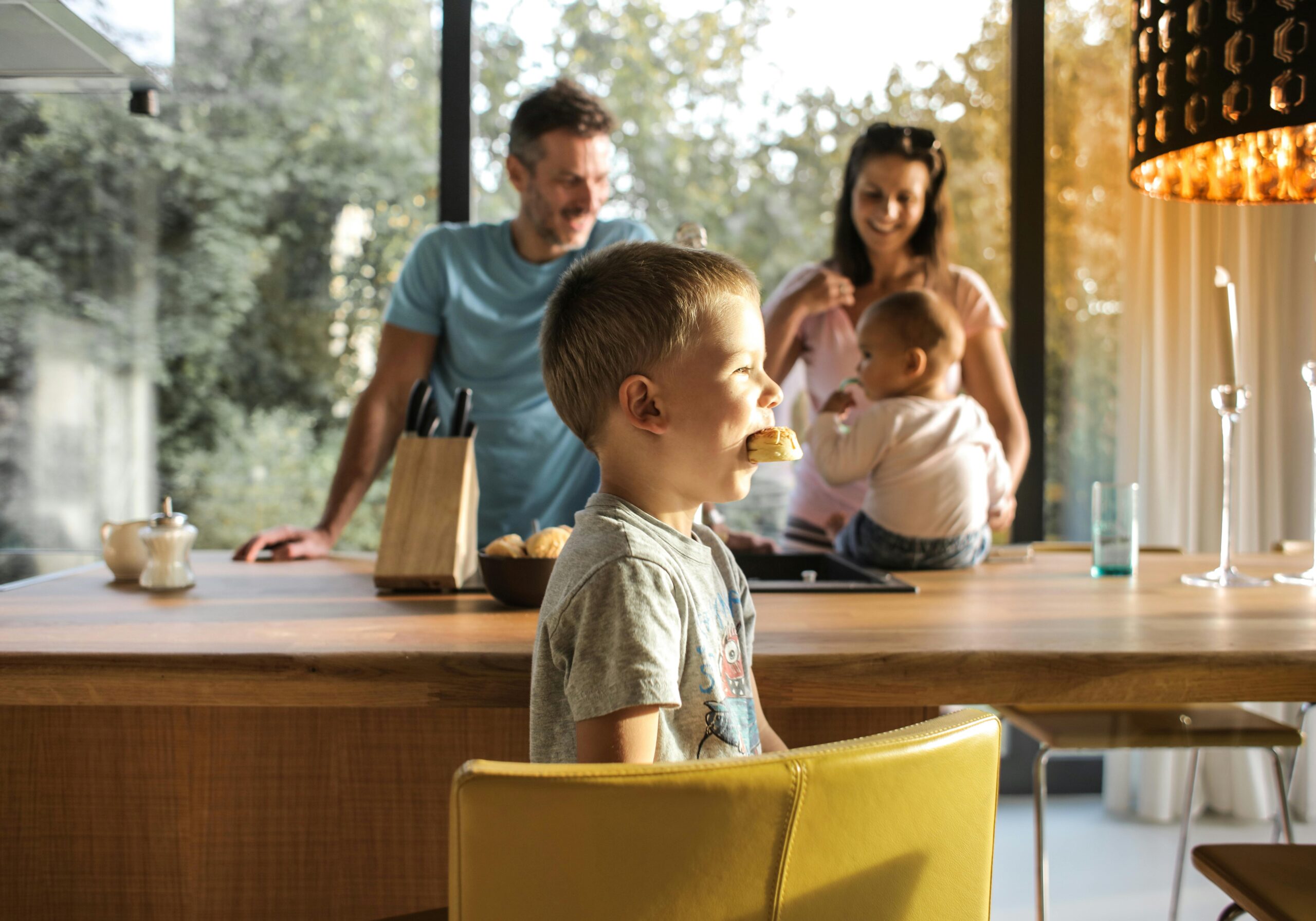
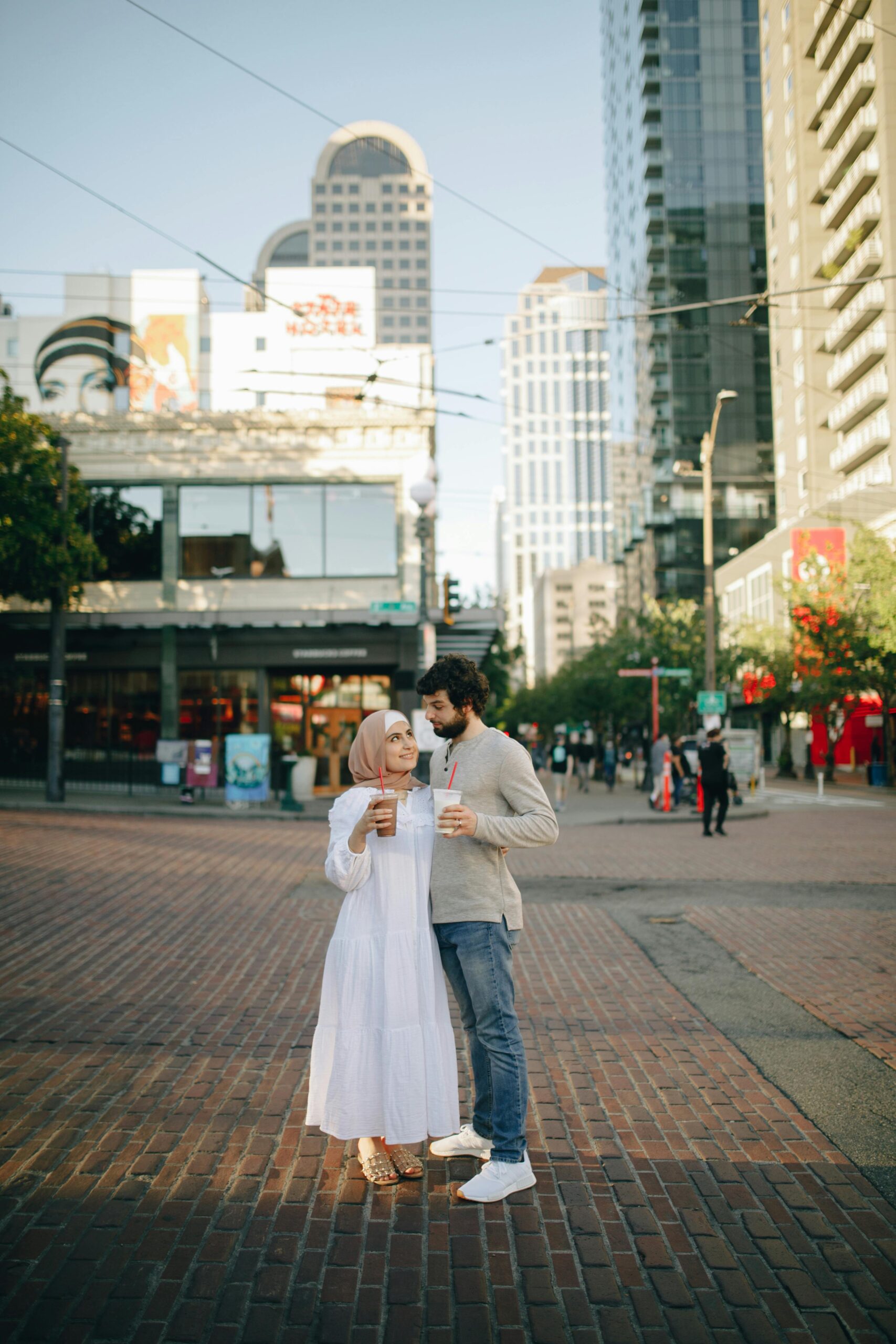
The First Factor: How Far Do You Want to Integrate In the Local Culture?
Every expat knows that feeling of stepping off the train or airplane in a country where everything is new. Its an unforgettable mixture of exhilaration and fear of the unknown. Add to that that you’re literally bombarded with all things new – new sights, smells, a new configuration of the grocery store layout where you can’t find tomato paste.
All of this is engaging for the brain and interesting to the soul but sometimes we as expats begin to experience a sort of ‘change’ fatigue where we long for a bit of familiarity.
This longing for familiarity varies from person to person. And it can crop up in unpredictable ways. I remember when I was buying items for our home after a move to England in 2015, I chose the Blue Willow pattern of dishes my grandma collected when I was a little girl. I just needed a touch of home at that moment and those dishes helped fill that need.
One of the first things you are going to want to know is how much ‘new’ you can comfortably take in at once. Giving yourself time to adapt and to make sense of the changes around you helps you navigate the changes with more grace.
Where do you see yourself in 3 years? 5 years?
This question actually dovetails into how far you want to integrate into Dutch culture. My personal opinion is if you are planning to live in Eindhoven for three years or less, put your children in the International School Eindhoven, learn to find your way around the area, and rent your home until the end of your stay. It is still excellent if you learn basic greetings and words like ‘gratis,’ but further Dutch language acquisition and fluency is generally not needed for shorter moves.
If you are planning on being in the Eindhoven area for 5 years or longer, then it is definitely worth your time and money to invest in a home, learn the language, and integrate as best you can. By buying a home, you’ll have a set house payment instead of possibly steadily rising rent. And the longer you own that home, the longer the equity in your home will build.
So if and when you come to sell again, you’ll stand a greater chance of making a profit or at least breaking even. By choosing to integrate more fully, you’ll end up feeling at home faster.
Envisioning yourself in 3 to 5 years also applies to your family situation. Are you planning a big family or life change in the next 3-5 years like marriage or becoming a parent? Then you’ll want to consider whether the home location you’re considering is in line with that long term vision. Granted, we can’t predict everything that will happen between now and then, but if you do know of upcoming changes, do not forget to take them into account.
So when you are considering locations, think about whether you can envision yourself in that home or location 3 to 5 years down the road. Don’t settle for temporary solutions you’ll regret in the long run. Take your time and make a rough plan with the knowledge you do have. You won’t regret taking the long term view.
What secondary schools are you interested in your children attending?
You may feel like this doesn’t apply to you at the moment. But it is a good idea to ask if this will apply to you in the future whilst you live in Eindhoven. Children in the Netherlands begin secondary school, or the equivalent of high school, at the age of 12. And unlike other countries, the choice of secondary school isn’t so simple and clear cut as simply following school boundaries.
At the end of group 8, or in other words during the last year of primary school, children get recommendations from their teachers for what kind of study trajectory they should study in secondary school. VMBO schools are generally geared towards learning trades. HAVO schools are five year programs that prepare students for higher professional education, and VWO is the university preparatory study level.
Not every secondary school offers every level of education, so often children in group 7 and 8 visit secondary schools on ‘open days’ to find the school they want to attend in range with the recommended study level from their primary school teachers in mind.
Now you can’t always project what level advice your child will receive from their teachers, but you can do some research to narrow down what secondary schools you and your child will potentially be interested in and then plan your home location to be within comfortable cycling distance. There’s no school bus transportation to and from school – you either cycle to school, take public transportation, or get a ride from parents in the car.
So using the location or potential location of your child’s secondary school to triangulate an area to search for your home just makes sense, especially in those dark & rainy winter months.


What do you want your commute to look like?
Do you remember when you learned to ride a bicycle as a child? That experience can come in very handy living in the Netherlands. The whole land is criss-crossed with bicycle paths geared to get you outdoors and to your destination without always tell guests who visit that the easiest way to explore Eindhoven is by bicycle.
Often when expats arrive, they have neither bike nor auto. And the simplest, fastest solution, at least in the beginning, is to bring some extra money along and buy your own bike, bike locks, rain gear, and basket or bike bags shortly after arriving. That’s because you’ll need time to register your residency, get your BSN number, and set up a Dutch bank account before buying a car.
But how do you want to get to work over the long term? If you buy a car, you’ll need to pay the motor vehicle tax once every three months. You can use a calculator on the Dutch government’s website to calculate what that will cost you. But having a car will give you the option of living further from Eindhoven and then commuting to work.
So if you dream of a Dutch style farmhouse with thatched roof in the countryside and you are happy commuting in and around Eindhoven, go ahead and look for that dream home.
But if you’d rather not splurge on an auto or see yourself happier on a bicycle, scooter, or fat bike, then you’ll probably want to forego that farmhouse kilometers from the nearest grocery store or neighbour.
Are you catching a theme here? It all depends on your preferences. But asking yourself what those preferences are by working through these seven variables and any others you can think of before committing to a large investment like a house is a sure fire way to guarantee long-term satisfaction with your house purchase.
Are you the fixer-upper type?
Many people in the United States or surrounding countries remember the success of Chip & Joanna Gains with their series ‘Fixer Upper,’ where they remodeled old homes into charming farmhouse country style gems. Do you see yourself in this capacity and do you see yourself having the time to remodel a home? How are your skills with a circular saw or hammer.
Or how will you find contractors to remodel the house for you? Where will you live whilst the home is being remodelled?
Advantages & Disadvantages with a Fixer-Upper
Sometimes buying a fixer upper allows you to get more house or land for your money, or to buy in a desirable location that otherwise might be out of your price range. It also means you could have a home full of quaint vintage features with established neighbours. Having a fixer-upper allows you to personalise your space as ‘yours’ in a way that no new build quite can.
But fixer-uppers are also notorious for being unexpected money pits. Weigh your options carefully as you consider your options with these.
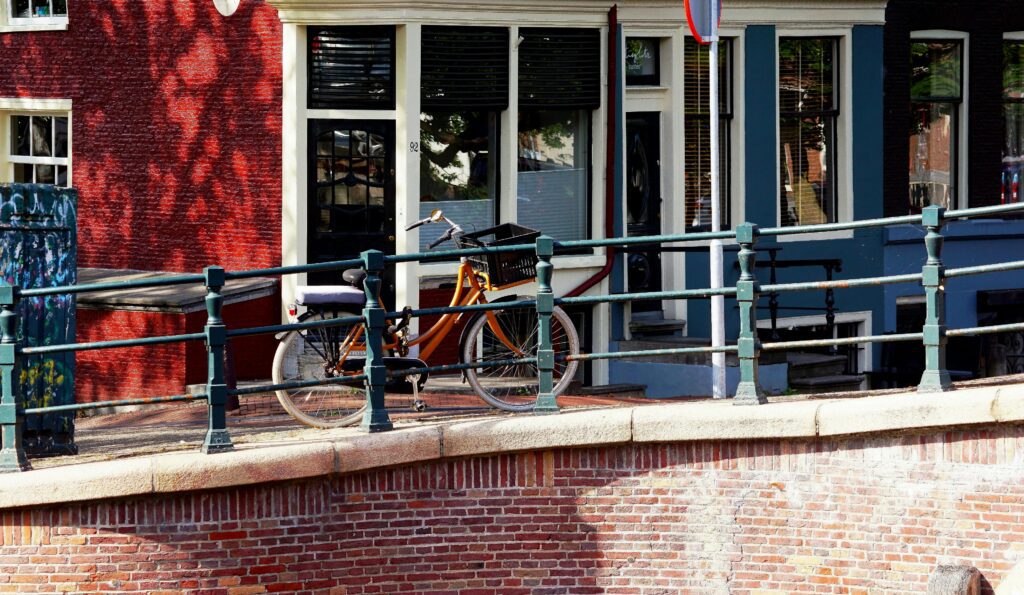
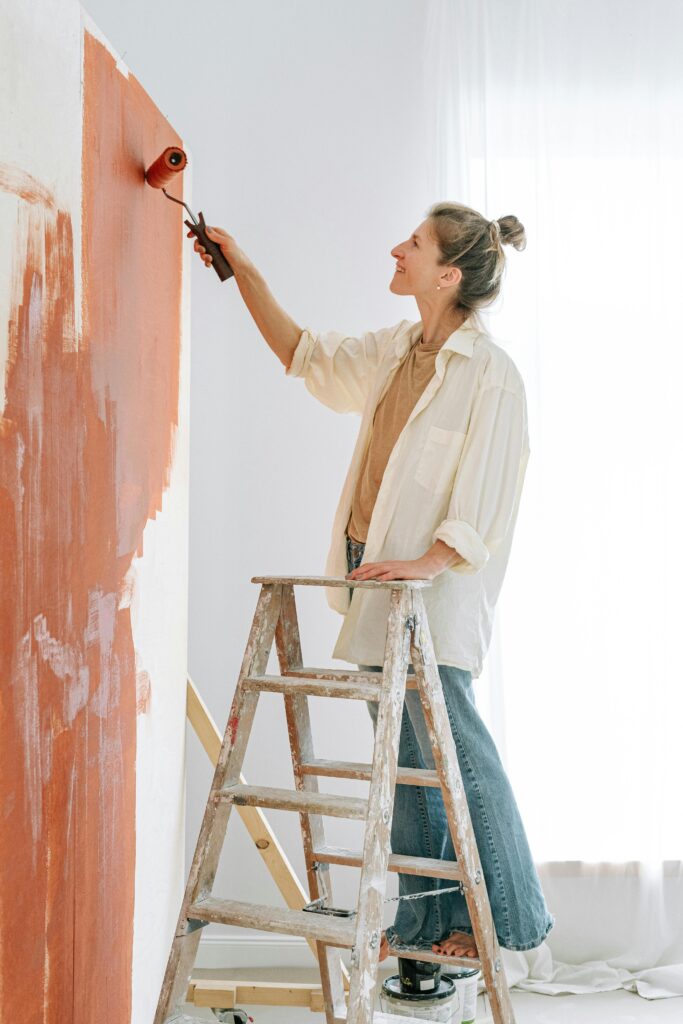
Our Experience with a Fixer-Upper
My husband and I bought a gemeentelijke monument in the center of Nuenen. With four children, we knew we needed a different layout than many of the homes we were finding at the time. Not only that, but I wasn’t looking to move again. Our days of buying a starter home in the past, we decided to invest in a fixer upper, knowing this would be the last time we’d every take on a house project of this kind.
Since then, we’ve dealt with adventures like a broken shower drain we had to break brick to repair, a leaking roof, and other surprises. It’s not for the faint of heart. But we love our old home, and we love our location next to a museum dedicated to Vincent Van Gogh. The project isn’t completed yet though.
So I understand completely if you decide you don’t want to live long term in a construction site and instead choose a house that’s ready for moving in to.
What are the advantages and disadvantages of the location? Is it livable?
Funnily enough, a location’s advantages and disadvantages are usually the first thing that comes to mind when you’re buying in your home country. But as an expat, you know that things can quickly get a lot more complicated. Still, this remains a vital consideration when you are considering locations in Eindhoven and the surrounding areas.
What we learned about locations in Europe
Considerations I didn’t have until moving to Europe where how walkable was it to the nearest grocery store, huisarts, or gym and where could I legally park my car. Now I wouldn’t consider a location without figuring those things first because that’s one of the perks and considerations of our current home. But we also hadn’t considered that living next door to a small museum would bring busloads of tourists to our front door frequently, because we viewed our home in winter and in the evenings when the museum was closed.
Location, Location, Location
Other questions you might want to ask yourself about your potential location would be what the crime rates are (and what those crimes are being committed), whether the local Carnaval parade route or other event runs in front of your door, if your home sits on a flood plain or has a history of water in the basement, what asbestos there may be in the home and whether you’ll have to pay to get it removed, and what the traffic is doing outside your front door.
Can you see yourself living in the location comfortably with the current neighbours for the foreseeable future? Ultimately it’s up to you to decide if your location’s advantages outweigh the disadvantages. I find it helpful to write up a list of pros & cons when considering locations. Just brainstorming might help you consider variables you hadn’t thought of before.
Are you prepared to respond quickly, bid on a home you want, and have all of your mortgage documentation ready?
At 522 people per square kilometer, the Netherlands is by far one of the most population dense countries in Europe. And if you aren’t aware yet, it is in the middle of a housing crisis. There simply are not enough homes to go around, and that makes competition fierce.
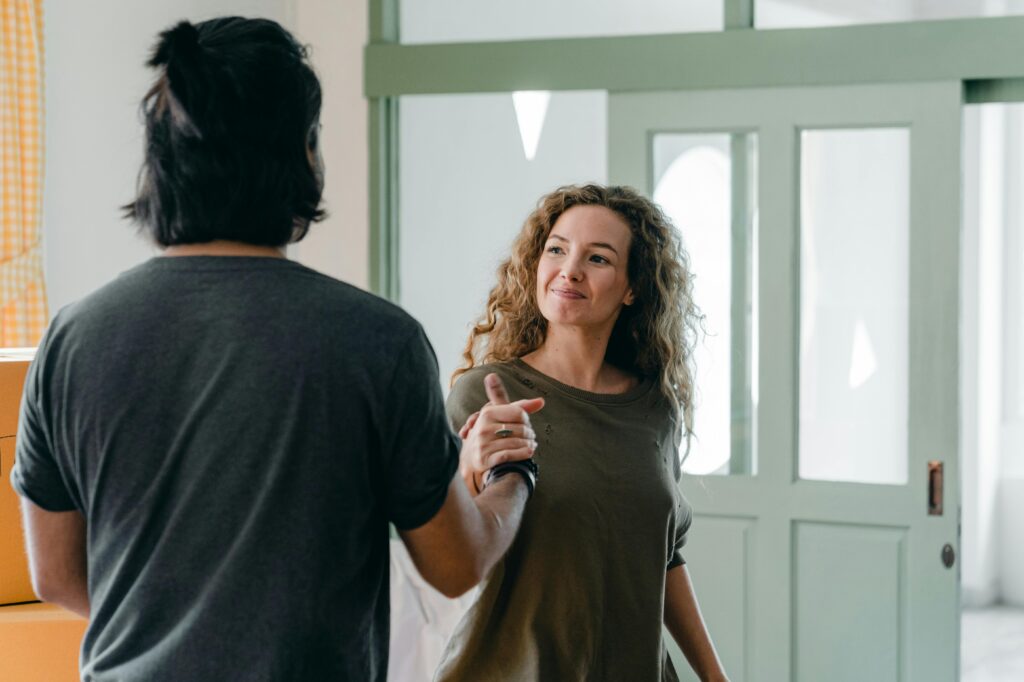

Eindhoven sees a steady influx of expats, especially through ASML. All of these people need houses. ASML itself is joining in combatting the housing crisis by adding affordable housing to the Brainport Region.
But what does all of this have to do with you? It means you need to be quick and decisive. It means understanding how much of a mortgage you can qualify for when you enter the housing market. It may also mean you will be bidding over the asking price of the home.
Making Use of Local Knowledge
Two of the best things we did when moving to the Netherlands were to hire a relocation specialist since my husband’s employer did not provide one, and to use a reliable buyer’s agent. By employing reliable local sources, we were able to get into a home that met our needs. We ended up buying a fixer-upper.
I did still scour Funda daily for homes of interest. And the ones I wanted to view I sent on to our buyer’s agent. He arranged our viewings of the homes and provided references when we wanted a building inspection done. We could reliably lay everything that we didn’t know or understand in his hands.
If you come as the expat spouse or partner of a knowledge migrant, it can be helpful if you view house hunting as your new full time job. Just like your partner who’s starting out new at their job, this can feel challenging. We are here to help answer any questions you may have.
What are you waiting for?
Imagine settling in your new home after you close on it. The neighbours bring you flowers, you set about tidying your home and making it yours. Gradually you greet and know by sight the neighbours who walk their dogs in the morning, and the older gentleman who cycles by in the morning on the way to pick up his groceries. You learn the rhythm of the garbage pick up (or rely on messages from the app, running a bin around the corner when you’re too late!).
And you know what time of day the community newspapers and post will come through your letterbox. And with time, you start receiving invitations to neighbourhood parties or to help decorate the community Christmas tree.
Ultimately we as expats seek an island of safety and stability, maybe even predictability. And we make that in our own homes. I truly believe these 7 considerations will help you make calm and confident decisions in a fast paced housing market. And that will make your Dutch home a reality.
 Buying a Home in Eindhoven
Buying a Home in Eindhoven How Does the Bidding Process Work?
How Does the Bidding Process Work? How Do I Make My Bid Stand Out?
How Do I Make My Bid Stand Out?